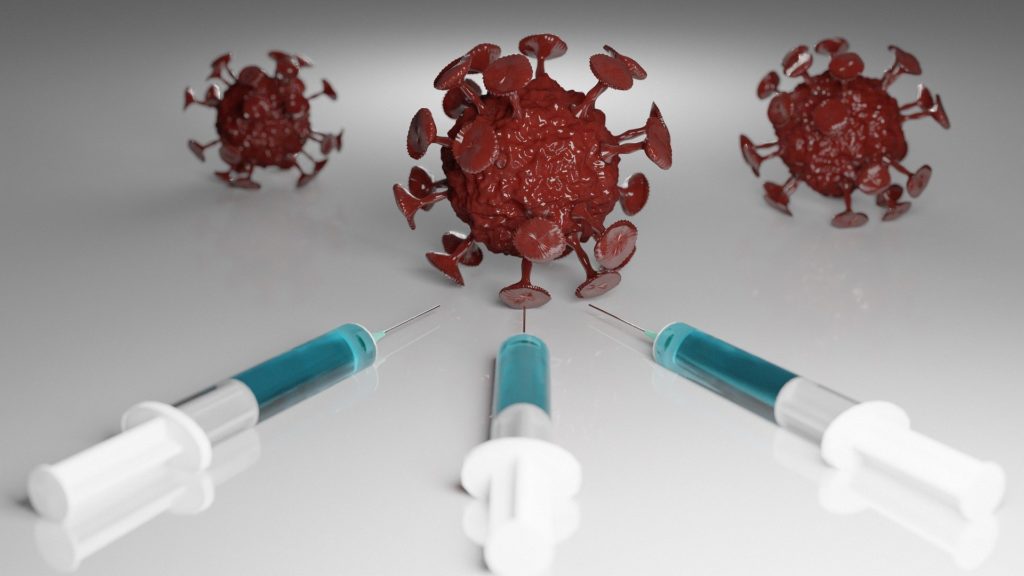On the heels of news that AstraZeneca/Oxford’s COVID-19 vaccine has markedly reduced effectiveness against the B.1.351 variant of SARS-CoV-2 that first appeared in South Africa, the vaccine makers are going full steam ahead to make a variant booster shot against the strain.
In a news release from the University of Oxford this week, the institute reported that the AstraZeneca/Oxford adenoviral ChAdOx1 nCov-19 (AZD1222) vaccine was found to confer minimal protection against mild and moderate COVID-19 infection from the B.1.351 variant in young adults in a study conducted in South Africa. Data from the study will be published on a preprint server shortly.
Meanwhile, the World Health Organization (WHO) announced in an interim guidance document that it recommends extending the time between the two doses of the AZD1222 vaccine, waiting between eight to 12 weeks before administering the second shot. The vaccine has a recommended window of four to 12 weeks between doses, but the same study that looked at the B.1.351 variant found that longer intervals within this time period are associated with greater vaccine efficacy.
The AZD1222 vaccine has an overall efficacy of 63 percent against symptomatic COVID-19 infection, and 100 percent efficacy in the prevention of severe disease.
Related: Pharma Rivals Step Up to Assist with COVID-19 Vaccine Production
B.1.351 Variant Booster
In the study that has prompted swift action to accelerate development of a vaccine against the B.1.351 variant, researchers found that neutralization of the virus by sera containing AZD1222 vaccine-induced antibodies was significantly lower compared with the original strain of SARS-CoV-2.
The researchers also conducted human trials in which approximately 2,000 participants received either two doses of the vaccine or placebo shots. Results showed that there was almost no difference in the number of individuals that got infected with B.1.351 between the vaccine and placebo groups. In the vaccine group, 19 of the 748 participants became infected with the new variant, compared with 20 out of 714 people in the group that got a placebo. This demonstrates that the vaccine offers dismal, if any, protection against the variant.
AstraZeneca and Oxford are thus working to quickly to update their vaccine to target B.1.351 and potentially other new coronavirus variants with mutations similar to it.
In the news release from Oxford, Andrew Pollard, professor of pediatric infection and immunity, and chief investigator on the Oxford vaccine trial, commented, “This study confirms that the pandemic coronavirus will find ways to continue to spread in vaccinated populations, as expected, but, taken with the promising results from other studies in South Africa using a similar viral vector, vaccines may continue to ease the toll on health care systems by preventing severe disease.”
Meanwhile, vaccine rollouts have been halted by South African authorities as they assess the situation and determine the best way forward. Scientists estimate that the problematic, more contagious B.1.351 variant accounts for up to 90 percent of new COVID-19 cases in South Africa.
Sarah Gilbert, professor of vaccinology at the University of Oxford said, “Efforts are underway to develop a new generation of vaccines that will allow protection to be redirected to emerging variants as booster jabs, if it turns out that it is necessary to do so.” She added, “We are working with AstraZeneca to optimize the pipeline required for a strain change should one become necessary. This is the same issue that is faced by all of the vaccine developers, and we will continue to monitor the emergence of new variants that arise in readiness for a future strain change.”
WHO Recommendations
Despite the troubling situation in South Africa with respect to the B.1.351 variant, the AstraZeneca-Oxford vaccine is still amongst the high-efficacy COVID-19 vaccines that are being delivered and administered worldwide where the variant has not taken a strong foothold. As with Pfizer and Moderna’s vaccines, the shot is 100 percent effective at preventing severe disease, including hospitalizations and deaths.
The recommendation of an eight to 12-week gap between the two doses of AZD1222 is not only beneficial with respect to enhanced efficacy, based on new study data, but also in light of growing vaccine shortages. Prolonging the time between doses has been a topic of contention as it was initially backed by a need to at least get one dose of a shot into more people, rather than scientific evidence.
However, now new data from AstraZeneca/Oxford’s ongoing trials shows that extending the time between the first and second dose offers increased efficacy. In the latest study, higher antibody levels were achieved upon increasing the interdose interval. In addition, no vaccinated individuals were hospitalized beginning 22 days after the first dose compared with 14 unvaccinated people who were hospitalized for COVID-19 in the same time frame. The results are outlined in a background paper put out by the WHO. The median follow-up time after the second dose was 80 days at the time of the interim analysis.
This data, therefore, supports a longer dose interval within the four to 12 week-range, which is a win-win with respect to both efficacy and increasing the potential for more people to get vaccinated.












Join or login to leave a comment
JOIN LOGIN